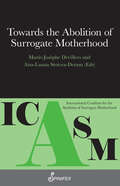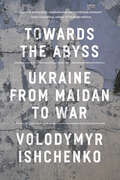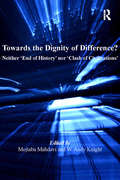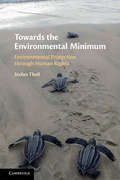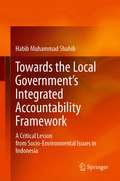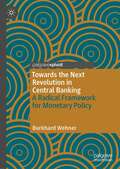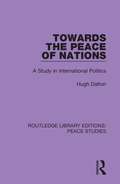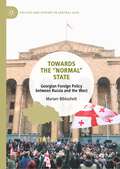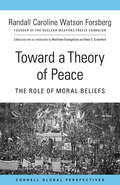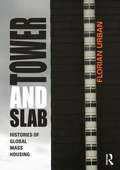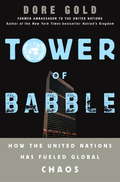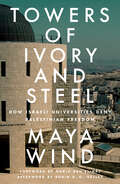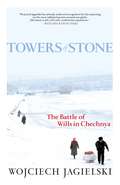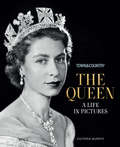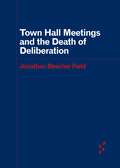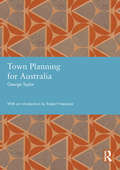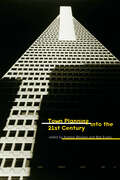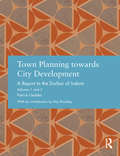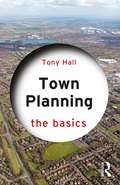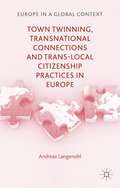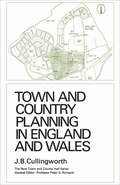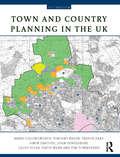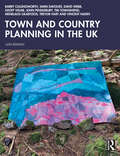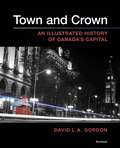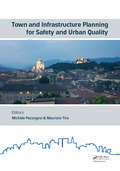- Table View
- List View
Towards the Abolition of Surrogate Motherhood
by Marie-Josèphe Devillers, Ana-Luana Stoicea DeramSurrogacy is not liberty. It is a crime. Women will not settle for junk liberty.We want real freedom – the substance, not just the appearance. We want real nourishment for our spirits. We want human dignity. We want it for all of us. We want it for women in Thailand and Bangladesh and Mexico as well as for the women who have not yet been born.—Gena CoreaIn this eloquent and blistering rejection of surrogacy, a range of international activists and experts in the field outline the fundamental human rights abuses that occur when surrogacy is legalised and reject neoliberal notions that the commodification of women's bodies can ever be about the ‘choices' women make.They outline a range of harms that follow – to the women who are so-called surrogates, to the children born of surrogacy arrangements, to the ‘intending parents' who a delivered of a child through forced separation from its mother.Catherine Lynch rails against surrogacy as the creation of babies for the express purpose of removal from their mothers, outlining the tragic outcomes for adopted people. Phyllis Chesler argues that commercial surrogacy is matricidal, “slicing and dicing biological motherhood” into egg donor, ‘gestational' mother and adoptive mother. Laura Nuño Gómez describes the surrogacy paradigm as an ethics-free zone, in which “buying whatever is for sale is possible as long as there is an agreement and that it is legal.” And Melissa Farley debunks the myth of ‘choice' in surrogacy, arguing that in a male-dominated and racist system, the exploitative sale of women in surrogacy, like in prostitution, is inherently harmful. Rich women do not make the choice to become surrogates or prostitutes.Other contributors to this collection include Renate Klein, Gary Powell, Marie-Josèphe Devillers, Rita Banerji, Laura Isabel Gomez Garcia, Eva Maria Bachinger, Alexandra Clement-Saby and Taina Bien Aimé.Harm cannot be regulated, because this would mean spreading and universalising it
Towards the Abyss: Ukraine from Maidan to War
by Volodymyr Ishchenko"Nuanced, melancholy, sophisticated and gratifyingly intimate."–Yanis Varoufakis, author of TechnofeudalismUkrainian politics, the Russian invasion and the escalating crisis of the post-Soviet worldTowards the Abyss presents searching analysis of a decade of war and upheaval in Ukraine. Volodymyr Ishchenko has been among the left&’s most significant commentators on Ukraine since 2014, when pro-EU protestors toppled the government in Kiev, Russia annexed Crimea and pro-Russian separatists seized parts of the Donbass. One of his first thoughts when he read the news of the full-scale Russian invasion on 24 February 2022 was that no matter how the war ends, he will no longer have a homeland.What has happened in Ukraine ever since the Soviet collapse is a drawn-out process of de-modernization, and the downward spiral is getting faster. Ishchenko argues that the conflict being fought in Ukraine with tanks, artillery and rockets is the same conflict suppressed by police batons in Belarus and in Russia itself. The intensification of the post-Soviet crisis – the incapacity of an oligarchic ruling class in the territories of the former USSR to sustain political or moral leadership – is the root cause of the escalating violence.
Towards the Dignity of Difference?: Neither 'End of History' nor 'Clash of Civilizations' (Ethics and Global Politics)
by Mojtaba MahdaviThe rise of popular social movements throughout the Middle East, North Africa, Europe and North America in 2011 challenged two hegemonic discourses of the post-Cold War era: Francis Fukuyama's 'The End of History' and Samuel Huntington's 'The Clash of Civilizations.' The quest for genuine democracy and social justice and the backlash against the neoliberal order is a common theme in the global mass protests in the West and the East. This is no less than a discursive paradigm shift, a new beginning to the history, a move towards new alternatives to the status quo. This book is about difference and dialogue; it embraces The Dignity of Difference and promotes dialogue. However, it also demonstrates the limits of dialogue as a useful and universal approach for resolving conflicts, particularly in cases involving asymmetric and unequal power relations. The distinguished group of authors suggests in this volume that there is a 'third way' of addressing global tensions - one that rejects the extremes of both universalism and particularism. This third way is a radical call for an epistemic shift in our understanding of 'us-other' and 'good-evil', a radical approach toward accommodating difference as well as embracing the plural concept of 'the good'. The authors strengthen their alternative approach with a practical policy guide, by challenging existing policies that either exclude or assimilate other cultures, that wage the constructed 'global war on terror,' and that impose a western neo-liberal discourse on non-western societies. This important book will be essential reading for all those studying civilizations, globalization, foreign policy, peace and security studies, multiculturalism and ethnicity, regionalism, global governance and international political economy.
Towards the Environmental Minimum: Environmental Protection through Human Rights
by Stefan TheilPervasive environmental harm that disproportionately impacts vulnerable members of society is left largely unregulated across the globe despite existing legal commitments to human rights and environmental protection in many states. To address this shortcoming, Stefan Theil proposes a new normative framework for environmental protection through human rights law. In clear and accessible prose, he demonstrates how such a human rights-based approach can strengthen environmental protection without requiring radical departures from established protection regimes and legal principles. The environmental minimum developed in the book translates the general and abstract commitments of states into specific and practical measures that protect the environment. The framework develops the doctrine of international, regional, and domestic courts, analysed through an innovative approach that improves contextual awareness. This book is thus a valuable resource for lawyers, social scientists, political theorists, environmental and human rights advocates.
Towards the Local Government’s Integrated Accountability Framework: A Critical Lesson from Socio-Environmental Issues in Indonesia
by Habib Muhammad ShahibThis book shows the growing phenomenon and the broad impact of socio-environmental conflicts in the grassroots communities—farmers, fishermen and urban poor—in Indonesia, as the effects of government’s development strategies based on neoliberal and New Public Management (NPM) views without a clear accountability system or socio-environmental accountability practices and reports are becoming apparent. Inspired by the emancipatory socio-environmental accounting discourse, which focuses on the socio-local context in developing alternative models of accountability based on local views and people's aspirations, this book uses research methodology based on the principles put forth by Indonesian national hero and critical scholar Tan Malaka to develop a framework of integrated accountability for the local government. This book fills the present gap in English publications that analyse the intents and outcomes of the public management reforms in Indonesia with regard to socio-environmental issues, as a basis for further research at the international level as well as policymaking in Indonesia. As the Indonesian government has recently undertaken key structural and accounting reforms in the public sector, this book is a timely and valuable read for graduate students, researchers,- and policymakers.
Towards the Next Revolution in Central Banking: A Radical Framework for Monetary Policy
by Burkhard WehnerThis book critically explores past and present principles of central banking, and outlines a new framework for future stabilization policy. Through compact and concise chapters, it demonstrates why a constant long-term interest rate would be the most beneficial target for monetary policy to follow. A novel set of policy tools and institutional arrangements suitable to reliably meet this target are developed.It is argued that the proposed framework would be clearly superior to conventional policies in preventing financial market crises, maintaining high employment, and keeping the economy at or near potential. The merits and shortcomings of alternative theories such as Modern Monetary Theory are also discussed.This book will be relevant to researchers and policymakers as well as professional investors, analysts, and commentators of financial markets and the economy at large.
Towards the Peace of Nations: A Study in International Politics (Routledge Library Editions: Peace Studies)
by Hugh DaltonHugh Dalton was a British Labour Party economist and politician, who served as Chancellor of the Exchequer from 1945 to 1947 under Clement Atlee. After surviving the First World War, he was drawn in to active politics with the belief that, rightly handled, it could put an end to war. This title, originally published in 1928, is based on his journeys of political observation in Europe, where he examined the new conditions created by the war and subsequent events. He outlines some central problems and some provisional solutions.
Towards the “Normal” State: Georgian Foreign Policy between Russia and the West (Politics and History in Central Asia)
by Mariam BibilashviliThis book explores the dilemmas of Georgian foreign policy since independence in 1991. Since the collapse of the Soviet Union, Georgia—a Caucasian republic with a fiercely independent national identity—has sought its own special path to European modernity, a promised land of prosperity and peace. Foreign policy has sought to reconcile the dream of European identity with the reality of being a small, post-colonial nation that was governed from Russia for nearly two centuries and remains mired in border conflicts with Russia. In an era when Russian concerns about sovereignty are once again dominating geopolitics, this book interests historians, scholars of imperialism, and scholars of the former Soviet Union and its messy politics.
Toward a Theory of Peace: The Role of Moral Beliefs
by Randall Caroline ForsbergMilitary analyst, peace activist, teacher, and social theorist Randall Caroline Watson Forsberg (1943–2007) founded the Nuclear Freeze campaign and the Institute for Defense and Disarmament Studies. In "Toward a Theory of Peace," completed in 1997 and published for the first time here, she delves into a vast literature in psychology, anthropology, archeology, sociology, and history to examine the ways in which changing moral beliefs came to stigmatize forms of "socially sanctioned violence" such as human sacrifice, cannibalism, and slavery, eventually rendering them unacceptable. Could the same process work for war?Edited and with an introduction by political scientists Matthew Evangelista (Cornell University) and Neta C. Crawford (Boston University), both of whom worked with Forsberg.
Tower and Slab: Histories of Global Mass Housing
by Florian UrbanTower and Slab looks at the contradictory history of the modernist mass housing block - home to millions of city dwellers around the world. Few urban forms have roused as much controversy. While in the United States decades-long criticism caused the demolition of most mass housing projects for the poor, in the booming metropolises of Shanghai and Mumbai remarkably similar developments are being built for the wealthy middle class. While on the surface the modernist apartment block appears universal, it is in fact diverse in its significance and connotations as its many different cultural contexts. Florian Urban studies the history of mass housing in seven narratives: Chicago, Paris, Berlin, Brasilia, Mumbai, Moscow, and Shanghai. Investigating the complex interactions between city planning and social history, Tower and Slab shows how the modernist vision to house the masses in serial blocks succeeded in certain contexts and failed in others. Success and failure, in this respect, refers not only to the original goals – to solve the housing crisis and provide modern standards for the entire society – but equally to changing significance of the housing blocks within the respective societies and their perception by architects, politicians, and inhabitants. These differences show that design is not to blame for mass housing’s mixed record of success. The comparison of the apparently similar projects suggests that triumph or disaster does not depend on a single variable but rather on a complex formula that includes not only form, but also social composition, location within the city, effective maintenance, and a variety of cultural, social, and political factors.
Tower of Babble
by Dore GoldA United Nations insider exposes how anti-American and antidemocratic forces have hijacked the UN and put America and its allies at risk Politicians and pundits are imploring the United States to give the UN a major role in American foreign policy. But as bestselling author Dore Gold reveals in Tower of Babble, it is absurd to look to the UN to fight aggression, combat terrorism, and preserve global order. The UN is an abject failure--a fatally flawed organization that has actually accelerated and spread global chaos. And it is dominated by anti-Western forces, dictatorships, state sponsors of terrorism, and America's worst enemies.In his New York Times bestseller Hatred's Kingdom, Gold blew the lid off Saudi support for terrorism, and now he uncovers an even more important story. As a former UN ambassador, he has a unique insider's perspective on why the UN fails to address--or in many cases exacerbates--the very problems it was created to solve. He shows how President Franklin Roosevelt's great vision has been corrupted beyond recognition. Using internal UN documents and classified cables, Gold presents stark evidence of how the UN ignores mass murder, emboldens terrorists, props up dictators, and otherwise betrays its mission to protect the world's security. Tower of Babble reveals:* Why America can--and indeed must--go outside the UN to address the most serious threats to national security* How the UN jeopardizes the success of the war on terror--and how terrorist groups have actually penetrated UN organizations* How, in the space of a year, the UN turned a blind eye to two horrifying episodes of mass murder--and why the slaughters could have been prevented* How the oil-for-food scandal only hints at the UN's repeated failures to deal with Saddam Hussein's Iraq* How the UN's new international criminal court threatens America's sovereignty* How the UN's startling record of failure has led Presidents Truman, Kennedy, Johnson, Clinton, and George W. Bush to bypass the UN Security CouncilAs this hard-hitting book reveals, it is, quite simply, a myth that the United Nations is a positive force for world order or the "sole source of international legitimacy." And unless the United States and its allies recognize this now, they will continue to put themselves at risk."Dore Gold's book is informed and informative. It can be read with pleasure and profit by anyone with a genuine interest in the United Nations. I warmly recommend it."--Jeane J. Kirkpatrick, former Ambassador to the United Nations"For anyone wondering what's wrong with the United Nations, this is the book to read. Providing both a concise history and an urgent warning for our own time, Dore Gold in clear and lively detail explains how and why the UN too often promotes not peace, but problems--and what we can do about it."--Claudia Rosett, columnist, the Wall Street Journal's Opinionjournal.com"Dore Gold's Tower of Babble is bound to be one of the most controversial critiques in the public debate on the UN."--Henry Kissinger, Former Secretary of StateFrom the Hardcover edition.
Towers of Ivory and Steel: How Israeli Universities Deny Palestinian Freedom
by Maya WindHow Israeli universities collaborate in Israeli state violence against PalestiniansIsraeli universities have long enjoyed a reputation as liberal bastions of freedom and democracy. Drawing on extensive research and making Hebrew sources accessible to the international community, Maya Wind shatters this myth and documents how Israeli universities are directly complicit in the violation of Palestinian rights.As this book shows, Israeli universities serve as pillars of Israel's system of oppression againstPalestinians. Academic disciplines, degree programs, campus infrastructure, and research laboratories all service Israeli occupation and apartheid, while universities violate the rights of Palestinians to education, stifle critical scholarship, and violently repress student dissent. Towers of Ivory and Steel is a powerful expose of Israeli academia&’s ongoing and active complicity in Israel&’s settler-colonial project.
Towers of Stone: The Battle of Wills in Chechnya
by Wojciech Jagielski Soren A. GaugerIn Towers of Stone, award-winning Polish reporter Wojciech Jagielski brings into focus the tragedy of Chechnya, its inhabitants, and the war being waged there by a handful of desperate warriors against a powerful and much more numerous army. Jagielski's narrative is told through the lens of two men: Shamil Basaev, a hero to some, a dangerous warlord to others; and Aslan Maskhadov, a calculating and sober politician, who is viewed as a providential savior by some of his compatriots and a cowardly opportunist by the rest. Caught up in a war to which they owe everything and without which they could not live, the two fighters face enemy forces--and one another--in protean conflicts that prove hard to quell. Viewing the two men's personal story as a microcosm of the conflict threatening to devour a land and its peoples, Jagielski distills the bitter history of the region with forceful clarity.
Town & Country The Queen: A Life in Pictures
by Victoria MurphyA pictorial celebration of Queen Elizabeth II&’s magnificent reign Since she succeeded to the throne in 1952, Queen Elizabeth II has become respected, celebrated, and beloved around the world. This stunning collection of powerful images illustrates her storied reign in all its glory. More than 300 extraordinary photographs, along with insightful commentary by the royal journalist Victoria Murphy, showcase the significant, historic, and intimate moments throughout the Queen&’s life, first as a young princess and then as the longest-reigning British monarch. The book covers her war years in service; her marriage to Prince Philip; her coronation—the first to be televised; her extensive official travels around the world; the glittering diplomatic occasions and encounters with world leaders, dignitaries, and celebrities; the pomp and pageantry of ceremonial events; her role as a fashion icon; her relationships with her parents, King George VI and the Queen Mother, and her sister, Princess Margaret; the birth of her son and heir to the throne Prince Charles; family life with her four children and eight grandchildren, as well as her beloved dogs and horses; and the growing role of Prince William and his wife, the Duchess of Cambridge, as they support the Queen in her public duties. Shown here too are the Crown Jewels as well as the Queen&’s personal jewelry collection; a look at the royal palaces and residences; and portraits from the stunning royal weddings that have so enchanted the world. Throughout her reign, with a combination of star power and a profound sense of duty, Queen Elizabeth II has steered the British monarchy into the modern era with supreme style and grace. She is truly a queen for all ages.
Town Hall Meetings and the Death of Deliberation (Forerunners: Ideas First)
by Jonathan Beecher FieldTracing the erosion of democratic norms in the US and the conditions that make it possible Jonathan Beecher Field tracks the permutations of the town hall meeting from its original context as a form of democratic community governance in New England into a format for presidential debates and a staple of corporate governance. In its contemporary iteration, the town hall meeting models the aesthetic of the former but replaces actual democratic deliberation with a spectacle that involves no immediate electoral stakes or functions as a glorified press conference. Urgently, Field notes that though this evolution might be apparent, evidence suggests many US citizens don&’t care to differentiate. Forerunners: Ideas First Short books of thought-in-process scholarship, where intense analysis, questioning, and speculation take the lead
Town Planning for Australia (Studies in International Planning History)
by George TaylorGeorge Taylor's Town Planning for Australia was the first dedicated book on the subject of urban planning published in Australia. Journalistic and ideological in style, it sets out a robust vision for a specifically Australian approach to planning and development of towns in a young country. Taylor was a controversial figure, a political activist and publisher who brought the NSW Town Planning Association into existence and played a key role in publishing and promoting planning into the 1920s.His wife Florence Taylor was the first female qualified architect and trained engineer in Australia, and an important figure in the history of planning and publishing in Australia.
Town Planning into the 21st Century
by Bob Evans Andrew BlowersProvides a series of insights into the planning process, introduces the key issues currently facing planning and offers prescriptions for the changes required as we move into the next millenium. Leading experts outline the changing context for land use and environmental policy in Britain and explain why the existing processes and profession of town planning are likely to be unable to provide satisfactory policy responses in the future. Key themes debated include: * widening the remit of traditional town planning * giving land and buildings a community value * acting for people rather than simply for the market * promoting an equalization of environmental conditions and discouragement of motorization * the need to anticipate long term global trends at the local and national level. Contributors: Andrew Blowers, Bob Colenutt, Richard Cowell, Bob Evans, Cliff Hague, Peter Hall, Susan Owens, Eric Reade, Yvonne Rydin.
Town Planning towards City Development: A Report to the Durbar of Indore (Studies in International Planning History)
by Patrick GeddesPatrick Geddes is one of the most important figures in planning history, variously presented as an inspiration to regional planning, environmental planning and sustainability, grass-roots planning, citizen democracy, historic preservation, neighbourhood upgrading, university–community partnership, lifelong learning, and co-operative housing. Though well-known and often praised by planning historians, his scholarship extended across a much broader range of disciplines, with extensive publication on biology and on civics, and significant contributions to sociology, economics, geography, education, and the arts and humanities. With the exception of his plan of Dunfermline, published in 1904, his plans are very hard to find. Most of his plans were prepared in India between 1915 and 1923, but beyond brief extracts from four of them included by Jaqueline Tyrwhitt in the book Patrick Geddes in India, they are very difficult to obtain. Some are lost altogether and the remainder are available in a handful of libraries, often held in Archives. Of all the plans prepared after Dunfermline, the most extensive is for the city of Indore, originally published in two volumes that combine a comprehensive scheme for the urban development of the city with a detailed plan for the proposed University of Central India.
Town Planning: The Basics (The Basics)
by Tony HallThe planning of urban and rural areas requires thinking about where people will live, work, play, study, shop and how they will get about the place, and to devise strategies for long time periods. Town Planning: The Basics provides a general introduction to the components of urban areas, including housing, transportation and infrastructure, and health and environment, showing how appropriate policies can be developed. Explaining planning activity at different scales of operation, this book distinguishes between the "big stuff", the grand strategy for providing homes, jobs and infrastructure; the "medium stuff", the design and location of development; and the "small stuff" affecting mainly small sites and individual households. Planning as an activity is part of a complex web stretching way beyond the planning office, and this book provides an overview of the many components needed to create a successful town. It is invaluable to anyone with an interest in planning, from students learning about the subject for the first time to graduates thinking about embarking on a career in planning, to local councillors on planning committees and community boards.
Town Twinning, Transnational Connections, and Trans-local Citizenship Practices in Europe
by Andreas LangenohlMany Europeans think that town twinning has greatly contributed to integration in Europe after the Second World War. This book, based on observations and interviews with twinning practitioners in small towns, reveals the social and cultural processes that inform twinning as a transnational practice, its perspectives and its limits.
Town and Country Planning in England and Wales: The Changing Scene (The New Town and County Hall Series #8)
by J. B. CullingworthThe British Town and Country Planning machine is the most sophisticated in the world, yet its inadequacies are only too apparent to those who are familiar with its evolution and operation. During the last decade it has been in a constant state of change in an attempt to come to terms with the needs of a rapidly changing society. This work attempts to provide a comprehensive picture of the planning system and the ways in which it is changing. An historical introduction leads into an account of the machinery of planning and the major new provisions of the 1968 Town and Country Planning Act. Special attention is then paid to the problems of land values, amenity, derelict land, planning for leisure, new and expanding towns, urban renewal and the search for an adequate means of regional planning. The book ends with an examination of some of the fundamental problems of public acceptance of, and public participation in, a democratic system of planning. The book is aimed at the student and the general reader. It is not a legal text, but neither is it intended as a polemic.
Town and Country Planning in the UK
by David Webb Barry Cullingworth Geoff Vigar John Pendlebury Simin Davoudi Tim Townshend Trevor Hart Vincent NadinTown and country planning has never been more important to the UK, nor more prominent in national debate. Planning generates great controversy: whether it's spending £80m and four years' inquiry into Heathrow's Terminal 5, or the 200 proposed wind turbines in the Shetland Isles. On a smaller scale telecoms masts, take-aways, house extensions, and even fences are often the cause of local conflict. Town and Country Planning in the UK has been extensively revised by a new author group. This 15th Edition incorporates the major changes to planning introduced by the coalition government elected in 2010, particularly through the National Planning Policy Framework and associated practice guidance and the Localism Act. It provides a critical discussion of the systems of planning, the procedures for managing development and land use change, and the mechanisms for implementing policy and proposals. It reviews current policy for sustainable development and the associated economic, social and environmental themes relevant to planning in both urban and rural contexts. Contemporary arrangements are explained with reference to their historical development, the influence of the European Union, the roles of central and local government, and developing social and economic demands for land use change. Detailed consideration is given to * the nature of planning and its historical evolution * the role of the EU, central, regional and local government * mechanisms for developing policy, and managing these changes * policies for guiding and delivering housing and economic development * sustainable development principles for planning, including pollution control * the importance of design in planning * conserving the heritage * community engagement in planning The many recent changes to the system are explained in detail - the new national planning policy framework; the impact of the loss of the regional tier in planning and of the insertion of neighbourhood level planning; the transition from development control to development management; the continued and growing importance of environmental matters in planning; community engagement; partnership working; changes to planning gain and the introduction of the Community Infrastructure Levy; and new initiatives across a number of other themes. Notes on further reading are provided and at the end of the book there is an extensive bibliography, maintaining its reputation as the 'bible' of British planning.
Town and Country Planning in the UK
by Barry Cullingworth Simin Davoudi David Webb Geoff Vigar John Pendlebury Tim Townshend Menelaos Gkartzios Trevor Hart Vincent NadinTown and Country Planning in the UK provides one of the most authoritative and comprehensive accounts of British planning history, institutions, legislation, policies, processes and practices. This 16th edition has been substantially revised and re-organised to provide an up-to-date overview of the planning systems in the four nations of the UK, supported by analyses, interpretations, illustrations and examples from planning practice.The new edition features: details of the legislative and policy changes since 2015 and discussion of their implications, including the early stages of the Levelling Up and Regeneration Act, 2023 discussion of environmental policies and programmes and the impact of Brexit on environmental regulatory landscape in Britain changes to climate change and resilience policies, notably the government’s ‘Net Zero’ agenda and their implications for planning updates to the substantive issues in plan-making, especially the responses to the shortage of affordable housing and the development of major infrastructure changes to the processes involved in plan-making and development management an expanded and revised chapter on design to include the growing significance of public health in the built environment major revisions to the chapter on rural planning revisions of the text on planning theory especially in relation to management of conflicts over the use and development of land extended discussion of politics, professionalism and participation in planning The 16th edition of Town and Country Planning in the UK is an ideal starting point for those who are studying or working in the planning field, and for other professionals who need to locate their work in the planning context.
Town and Crown: An Illustrated History of Canada’s Capital
by David L. GordonTown and Crown is an illustrated history of the planning and development of Canada’s capital, filling a significant gap in our urban scholarship. It is the story of the transformation of the region from a subarctic wilderness portage to an attractive modern metropolis with a high quality of life. The book examines the period from 1800 to 2011 and is the first major study that covers both sides of the Ottawa River, addressing the settlement history of Aboriginal, French, and English peoples.Ottawa’s transformation was a significant Canadian achievement of the new profession of urban planning in the mid-20th century. Our national capital has the country’s most complete history of community planning and served as a gateway for important international planning ideas and designers. Town and Crown illustrates the influence of landscape architect and Olmsted protégé Frederick Todd, Chicago’s City Beautiful architect Edward Bennett, and British planner Thomas Adams. Prime Minister Mackenzie King maintained a direct interest in planning Canada’s capital for almost fifty years, choosing France’s leading urbaniste, Jacques Gréber, to plan the post-1945 redevelopment of the region.The principal research method for Town and Crown includes over sixteen years of archival studies in North America, Australia, and Europe, and interviews with key politicians, designers, and planners that supplemented the contemporary research. The narrative is supplemented by over 200 images drawn from early sketches, historical maps, plans, and archival photography to illustrate the physical transformation of Canada’s federal capital.
Town and Infrastructure Planning for Safety and Urban Quality: Proceedings of the XXIII International Conference on Living and Walking in Cities (LWC 2017), June 15-16, 2017, Brescia, Italy
by Michèle Pezzagno & Maurizio TiraToday, citizens advocate greater environmental sustainability, better services and the improvement of urban quality by promoting safer mobility, especially for the most vulnerable road users. Addressing these issues, Town and Infrastructure Planning for Safety and Urban Quality contains papers presented at the XXIII International Conference “Living and Walking in Cities” (Brescia, Italy, 15-16 June 2017). The contributions discuss town planning issues, look at best practices and research findings across the broad spectrum of urban and transport planning, with particular attention to the safety of pedestrians in the city. The main topics of the book are: - Urban regeneration. A focus on walkability (vulnerable road users; boosting and planning soft mobility)- Road safety and urban planning - vulnerable road users: planning for safety (integrated land use and transport planning; methodological approaches and case studies; integrated tools for town and transport planning; shaping public spaces and walkability; transport solutions for tourism)- Innovative and traditional solutions for Italian cities- Extra-European approaches to town and infrastructure planning- Different perspectives in road safety: prevention, infrastructure, sharing- Advances in road safety Town and Infrastructure Planning for Safety and Urban Quality is a powerful plea for a multi-disciplinary and comprehensive approach to urban mobility and planning, and will be of interest to academics, consultants and practitioners interested in these areas.
